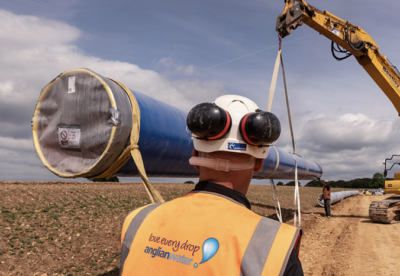It wants to fast-track major infrastructure projects such as new transport links, offshore wind farms and waste water management facilities.
Work will start identifying the projects from Spring with the aim of announcing the pilot projects in September.
Fresh measures are being introduced to tackle slowing of the planning process in recent years and increase in the number legal challenges.
Between 2012 and 2021 the time it took for projects to go through the Development Consent Orders (DCO) process has risen from 2.6 to 4.2 years.
Under the plans for a new fast-track route planning route, the Secretary of the State will have new powers to decide whether to put shorter deadlines in place to examine certain projects.
Other measures to speed up planning will include community engagement and making environmental protections more effective.
This will also see more project detail needed at the pre-planning stage alongside shorter time frames for project assessment.
The big Government departments including Transport, Environment and Energy Security and Net Zero are all signed up to deliver the Nationally Significant Infrastructure Project (NSIP) Action Plan published yesterday.
Local Government Minister, Lee Rowley MP said: “The plan we have published demonstrates the commitment across government to ensuring the planning system supports us to improve our energy security and deliver the major transport links and essential facilities this country needs to thrive.”
NSIP Action Plan
-
- Reviewing and updating National Policy statements more regularly to make sure they clearly set direction which enables more robust decision making. The Government has already asked the National Infrastructure Commission to make recommendations on how the process to renew NPSs can be strengthened and improved.
- Speeding up the application process by streamlining regulations and updating guidance to make sure it is proportionate and piloting a new fast track process with powers for the Secretary of State to set shorter timelines for certain projects.
- Reforming environmental regulations around new development and introducing the Environmental Outcomes Report – a new approach that will make environmental protections more effective, reduce bureaucracy and focus on the outcome of development. The Action Plan will also make sure that the NSIP process is aligned with the Government’s wider environmental goals, such as reaching Net Zero.
- Strengthening community engagement through more support and knowledge sharing between Local Authorities and the Planning Inspectorate. The use of Planning Performance Agreements will also be revised to be more effective. This will ensure the role local areas play in delivering new projects is increasingly recognised.
- Measures to help infrastructure developers get the early expertise they need, including powers for certain experts consulted during the process to recover full costs for services.
Legislative changes to streamline and strengthen the application process will be brought forward by Spring 2024.


























































.gif)